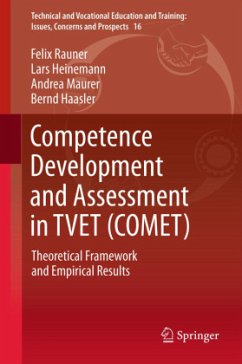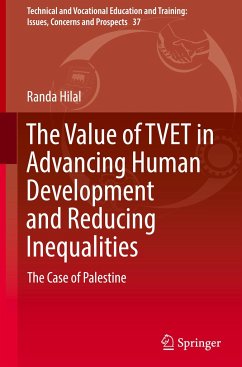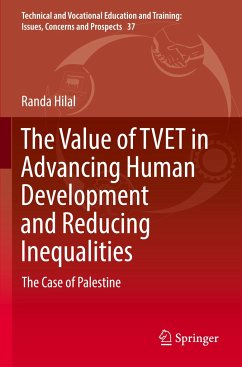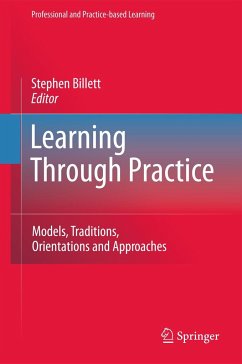
The Architecture of Innovative Apprenticeship

PAYBACK Punkte
38 °P sammeln!
This volume reflects on the criteria of a modern dual vocational education and training system building on the apprenticeship tradition, the management and governance of dual VET systems, and the standards and procedures for developing occupational curricula. Apprenticeship, the oldest type of vocational education, has experienced a revival in recent years. Many new countries are newly adopting apprenticeships based on what is termed the dual system of vocational education, so called because it combines workplace learning in an enterprise with classroom teaching in an educational institute. Th...
This volume reflects on the criteria of a modern dual vocational education and training system building on the apprenticeship tradition, the management and governance of dual VET systems, and the standards and procedures for developing occupational curricula. Apprenticeship, the oldest type of vocational education, has experienced a revival in recent years. Many new countries are newly adopting apprenticeships based on what is termed the dual system of vocational education, so called because it combines workplace learning in an enterprise with classroom teaching in an educational institute.
The key questions that are taken into consideration for evaluating the operation of dual VET systems and for the formulation of standards are the following: How can the coordination between the vocational education and training (VET) systems and employment systems be improved? What are the conditions for promoting employment opportunities for young people, thus facilitating the transition from school to work? What are the effects on the competitiveness of companies? How can rewarding careers be made accessible for a large segment of the population?
The key questions that are taken into consideration for evaluating the operation of dual VET systems and for the formulation of standards are the following: How can the coordination between the vocational education and training (VET) systems and employment systems be improved? What are the conditions for promoting employment opportunities for young people, thus facilitating the transition from school to work? What are the effects on the competitiveness of companies? How can rewarding careers be made accessible for a large segment of the population?














